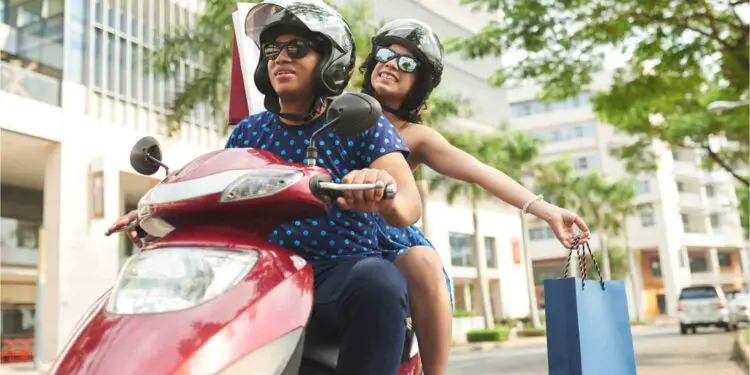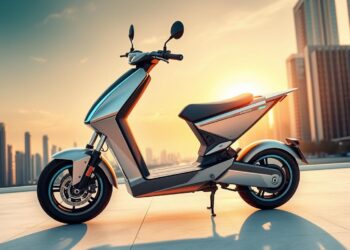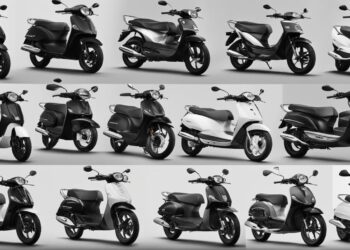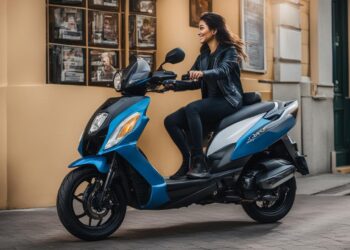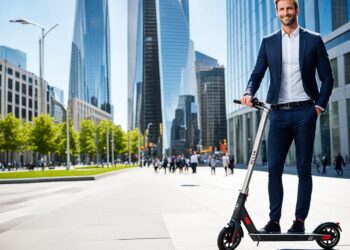Riding a Vespa is a thrilling experience, but safety should always be your top priority. When it comes to Vespa riding, selecting the right helmet is crucial.
In this comprehensive guide, we will delve into the world of Vespa helmets, exploring various options, safety standards, and providing expert advice to ensure you make an informed choice. So, let’s dive in and find out, “What Helmet Should I Wear On A Vespa?”
What Helmet Should I Wear On A Vespa?
When it comes to Vespa riding, your helmet is your best friend on the road. It not only protects you from potential head injuries but also adds to your style quotient. Choosing the right helmet can be a daunting task, considering the multitude of options available in the market. Let’s break down the factors to consider when selecting the perfect helmet for your Vespa adventure.
Safety First
Your safety should always be your top priority. Look for helmets that meet safety standards, such as DOT (Department of Transportation) or ECE (Economic Commission for Europe) certifications. These standards ensure that the helmet has undergone rigorous testing and will provide adequate protection in the event of an accident.
Helmet Type
Vespa riding can vary from short commutes to long journeys. Consider your riding style and choose the appropriate helmet type. Full-face helmets provide the most protection, covering your entire face, while open-face helmets offer a more classic look and better ventilation. Modular helmets combine the best of both worlds, allowing you to flip up the front section.
Fit and Comfort
A helmet that doesn’t fit properly can compromise your safety and comfort. It’s essential to try on different helmets and find one that snugly fits your head shape. Ensure that the helmet doesn’t put pressure on your forehead or cheeks, as this can cause discomfort during long rides.
Lorem ipsum dolor sit amet, consectetur adipiscing elit. Ut elit tellus, luctus nec ullamcorper mattis, pulvinar dapibus leo.
Material and Weight
Helmets are made from various materials, including fiberglass, polycarbonate, and carbon fiber. The material affects the helmet’s weight and durability. Lightweight helmets are more comfortable for extended rides, but they should not compromise safety.
Ventilation
Proper ventilation is crucial to prevent fogging and discomfort. Look for helmets with adequate vents that allow air circulation. This is especially important if you plan on riding in different weather conditions.
Style and Design
While safety is paramount, you don’t have to sacrifice style. Vespa riders often appreciate helmets that complement their scooter’s aesthetics. Choose a design and color that suits your taste and matches your Vespa.
Budget
Helmets come in various price ranges. Set a budget that you’re comfortable with and stick to it. Remember that a higher price doesn’t always equate to better quality, so do your research.
Maintenance
Regular maintenance ensures your helmet remains in top condition. Check for removable and washable liners, as they make cleaning a breeze. Also, inspect the helmet for any signs of wear and tear, and replace it if necessary.
Warranty and Return Policy
Always check the warranty and return policy of the helmet you choose. This can provide peace of mind in case you encounter any issues with your purchase.
FAQs
Q: How often should I replace my Vespa helmet?
A: Helmets should be replaced every five years, or sooner if they have been involved in an accident or show signs of damage.
Q: Can I use a motorcycle helmet for my Vespa?
A: While motorcycle helmets provide protection, it’s recommended to choose a helmet specifically designed for scooters like Vespa. They offer better visibility and are often more lightweight.
Q: Are there helmets designed exclusively for Vespa riders?
A: Yes, some brands offer helmets tailored to Vespa riders, designed to complement the scooter’s aesthetics.
Q: What is the difference between a full-face and open-face helmet?
A: A full-face helmet provides complete coverage, including the chin area, offering better protection. An open-face helmet leaves the face exposed but is often preferred for its classic look and improved ventilation.
Q: Can I wear glasses with my Vespa helmet?
A: Yes, many helmets are designed to accommodate glasses. Look for helmets with removable cheek pads to make wearing glasses more comfortable.
Q: Is it essential to wear a helmet when riding a Vespa?
A: Absolutely. Wearing a helmet is not only essential for your safety but also a legal requirement in many places. Always wear a helmet when riding your Vespa.
Conclusion
Selecting the right helmet for your Vespa is a decision that should not be taken lightly. Your safety and comfort on the road depend on this choice. Remember to prioritize safety, choose a helmet that fits well, suits your style, and falls within your budget. Regular maintenance and adherence to safety standards will ensure a safe and enjoyable Vespa riding experience.
So, the next time you ask yourself, “What Helmet Should I Wear On A Vespa?” remember the valuable insights shared in this guide. Ride safely, and may your Vespa adventures be filled with joy and style.

